The FBI’s Hostage Rescue Team (FBI HRT) is a premier unit within the federal law enforcement system, renowned for its role as the sole full-time counter-terrorism force. These Special Agents, who make up the unit, are highly skilled and trained to the same standards as the military’s top special operations units, allowing them to swiftly respond to threats within a four-hour deployment time frame.
FBI HRT vs. FBI SWAT
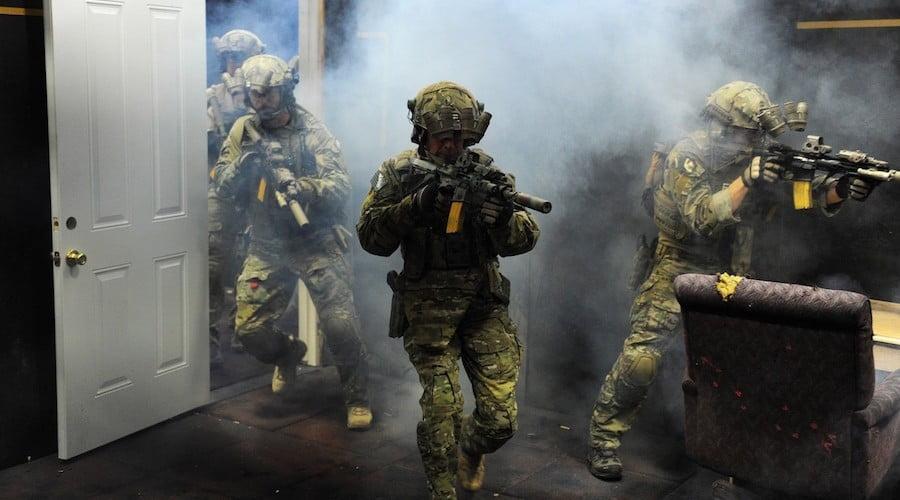
The FBI HRT should not be confused with an FBI SWAT team, as there are 56 SWAT teams dispersed throughout the United States, each comprising agents from the various FBI divisions. These teams are selected through a rigorous tryout process and a 2-day evaluation, and membership is open to agents of varying ages and physical fitness levels. While FBI SWAT teams are important to the FBI’s operations, they are not a primary focus for agents as they have other commitments.
The 56 FBI SWAT teams are organized into three tiers, with the FBI HRT being considered Tier 1, 14 teams classified as “Enhanced SWAT teams” falling under Tier 2, and the remaining “regular SWAT teams” making up Tier 3.
Mission
The FBI HRT is summoned to handle terrorist incidents, hostage crises, and significant criminal threats. These highly skilled operators are trained in marksmanship, breaching tactics, and close-quarters combat. They can execute advanced techniques such as rappelling from helicopters and conducting SCUBA operations while carrying full mission equipment.
It is worth noting that, despite their elite status, FBI HRT operators are, first and foremost, Special Agents. In addition to their specialized abilities, they perform the regular duties of a Special Agent, including evidence collection.
History
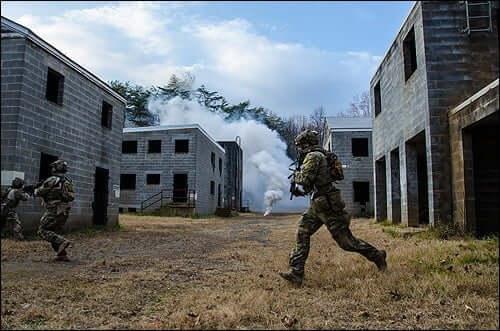
The inception of the FBI’s Hostage Rescue Team was a response to a series of terrorist incidents in the late 1960s to the 1970s, including the Iran hostage crisis. Other nations also established similar teams during this period. In 1983, the FBI formed the HRT, under the leadership of Danny Coulson, after recognizing the need for a civilian counter-terrorism tactical unit.
This was particularly important as preparations were underway for the 1984 Summer Olympics in Los Angeles following the tragic events at the 1972 Munich Games, where 11 Israeli athletes were taken hostage and killed by terrorists. The United States did not have a civilian counter-terrorism tactical team at the time of its formation.
“When Los Angeles won the nomination for the 1984 Olympics, the question was, ‘Who would handle an event such as Munich?’ And there weren’t a lot of good answers,” said FBI Deputy Director Sean Joyce. By law, the military cannot operate within the U.S. without presidential or legislative approval, so officials needed other tactical alternatives. “That’s how the idea of a Hostage Rescue Team evolved,” he said.
Since its formation, the FBI HRT has completed numerous domestic and international missions involving hostage rescues. With over 800 deployments worldwide, the team has played a crucial role in safeguarding the nation and saving countless lives.
Selection
The FBI Hostage Rescue Team comprises the elite, and only a small percentage of candidates pass the selection process. The selection and training of the HRT are modeled after those of the first 1st SFOD-D (Delta Force), with slight modifications specific to the FBI.
The selection process involves a rigorous psychological screening and stress evaluation to eliminate individuals who may not be mentally fit for the role. This is exemplified by Timothy McVeigh, the Oklahoma City bomber which dropped from Phase II of Special Forces selection.
To be eligible to join the HRT, a candidate must either be an experienced Special Agent or have prior military experience in combat arms or special operations. The selection process involves a grueling two-week evaluation that tests physical and mental toughness and the ability to make quick decisions. Candidates are referred to by numbers instead of names and receive no feedback during the course. Even if a candidate completes the course, the selection is not guaranteed. To be selected, one must have the ability to work effectively within a team environment.
Training
The FBI Hostage Rescue Team is equipped to operate in various climates and terrains and is trained to carry out counter-terrorism missions with precision and effectiveness. With its aviation and maritime resources, the team can enter hostile environments using advanced techniques such as HALO paratrooping and fast-roping.
The training for the agents is rigorous, focusing on skills such as marksmanship, tactical operations, and close-quarter combat, making them one of the most formidable counter-terrorism units in the world. Additionally, they receive training from elite military special operations units, such as Delta Force, and engage in cross-training programs with top international special operations forces.
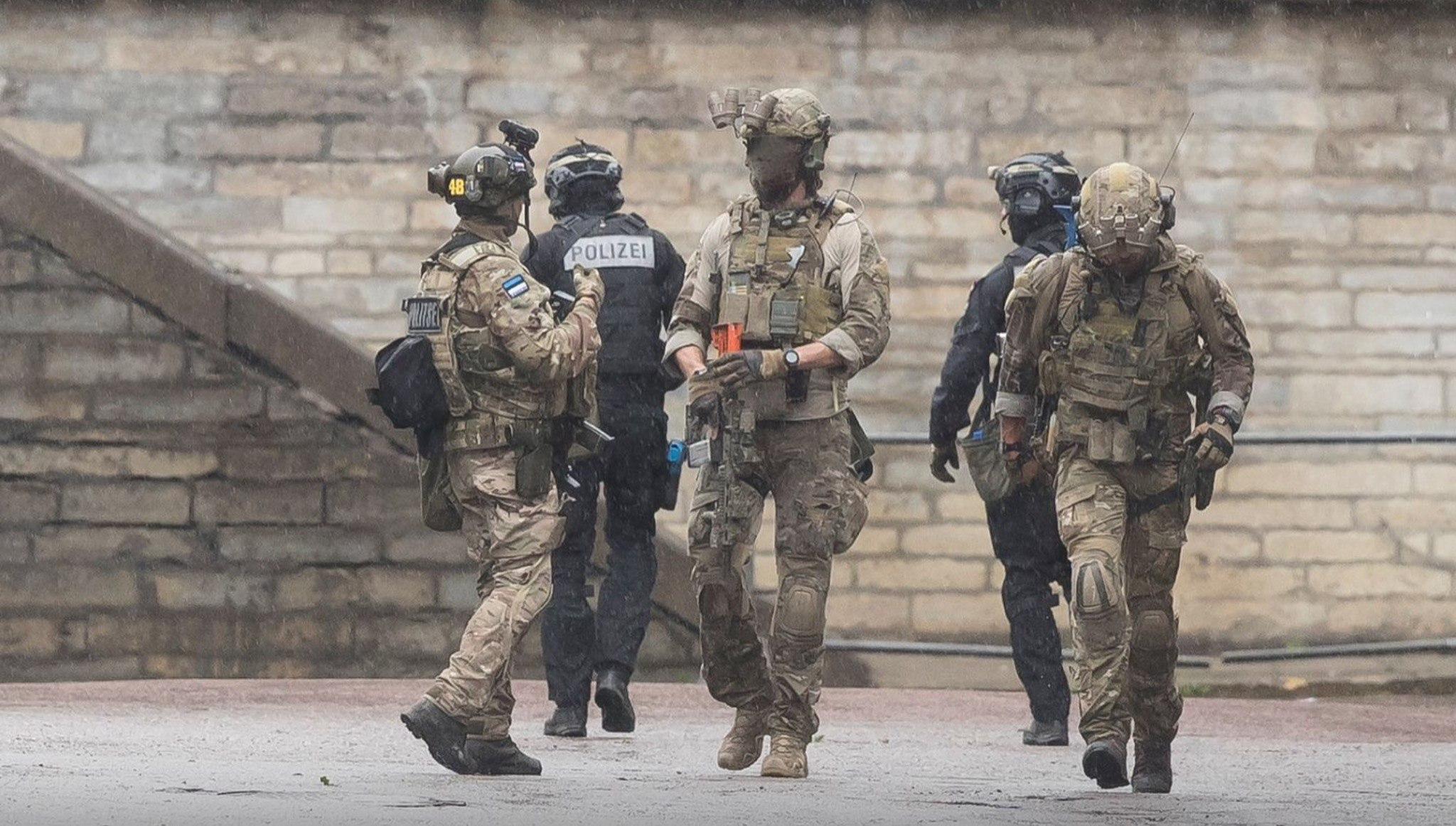
Equipment
The FBI HRT has top-notch equipment and gear, including helicopters, armored vehicles, and modern weaponry. They have switched from using SMGs to carbines, moving from 9mm to 5.56mm calibers, with most operators now using M4/Mk 18 rifles instead of the previous Heckler and Koch MP5.
After conducting extensive ballistic testing, the FBI determined that the 5.56 round was the ideal choice for operations due to its versatility for close quarters and long-range engagements, as well as its low risk of overpenetration and ability to defeat soft body armor.
Conclusion
The FBI Hostage Rescue Team (HRT) is a highly specialized unit within the FBI that undergoes a rigorous selection process and intense daily training. The team is based at the FBI’s headquarters in Quantico, Virginia and comprises the best in law enforcement. Candidates must be experienced Special Agents or have prior military experience in combat arms or special operations and must undergo a challenging two-week selection process. Once selected, the FBI HRT operates solely as a hostage rescue team and is considered one of the top counter-terrorism units in the world. Even former SEALs and Rangers have failed the tryouts for the FBI HRT.
Quick facts
| Active: | 1982 – present |
| Country: | United States |
| Type: | Law enforcement |
| Role: | Full-time, counter-terrorism, hostage rescue |
| Operators: | up to 100 |
| Headquarters: | Quantico, Virginia |



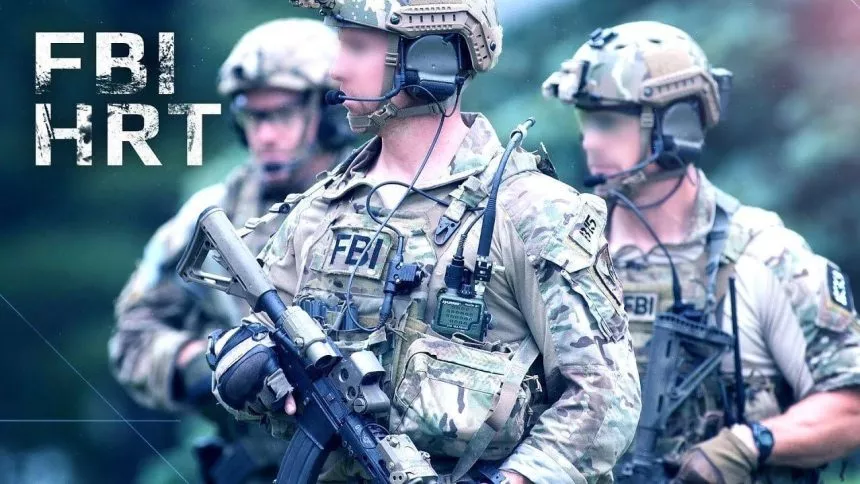
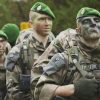
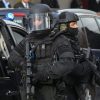
I want to join and be a part of you dudes do. I can’t begin to tell y’all how much I love this country and helping people who can’t help themselves out of that type of situation or situations? now email though. #4024744343 Dane